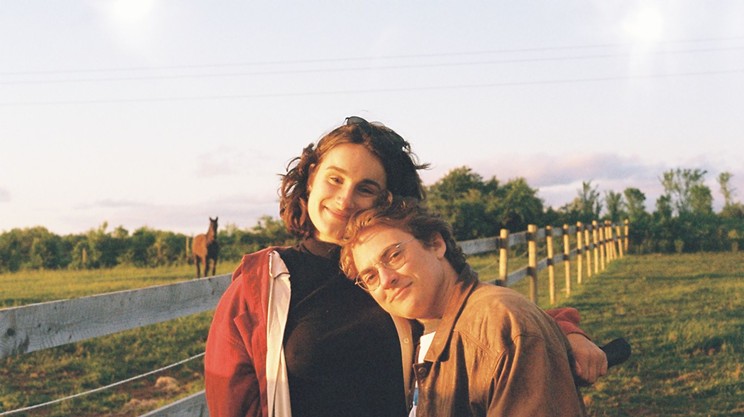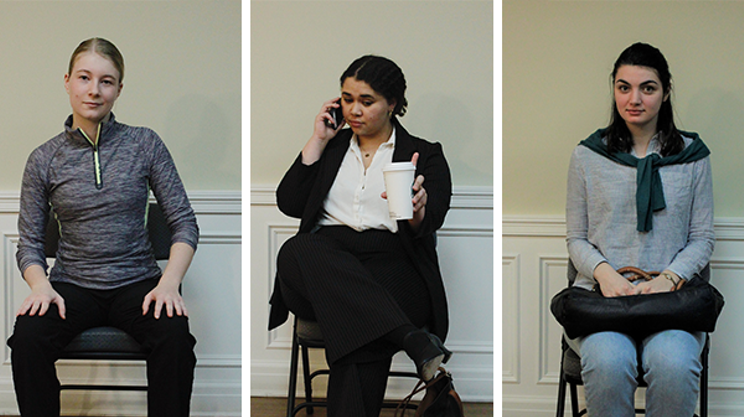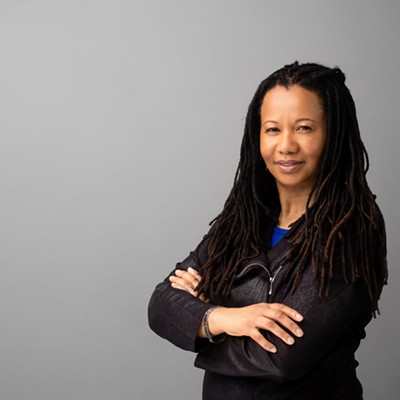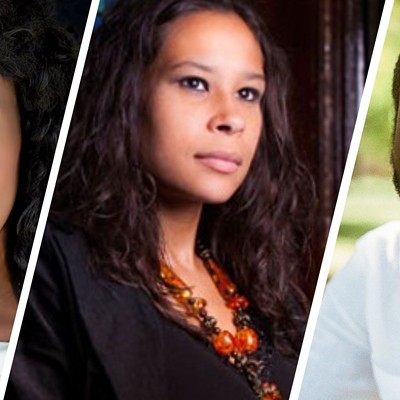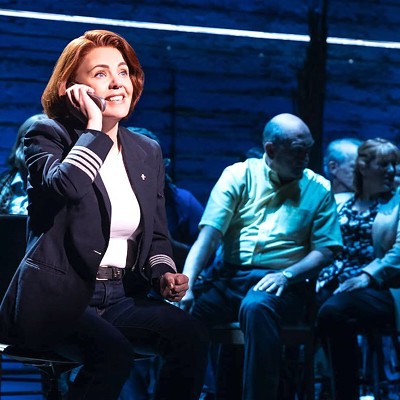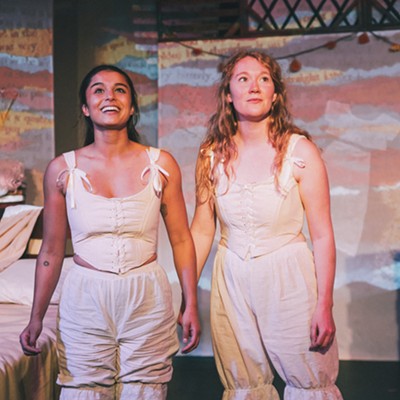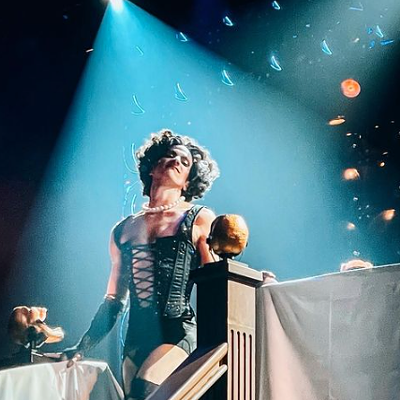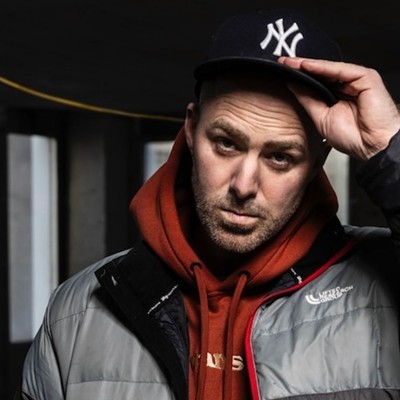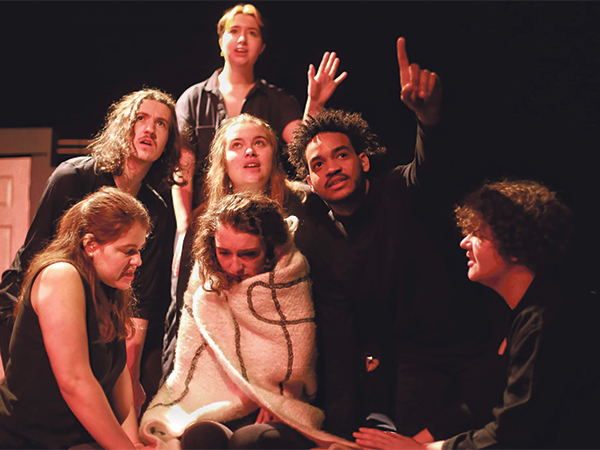
Will You Taste Our Blood
Mar 5-Mar 7
The Pit, University of King's College, 6350 Coburg Road
8-10pm
$5/$10
Katie Clarke was trying to create a way to exist in her body—to quell the undertow of her anxiety and the skin-picking that came with it—when Euripides found her. "I kept having this feeing of wanting to climb out of my own skin but I didn't have a metaphor; I couldn't think of a way to express it," she recalls. The GOAT of classical Greek tragedies, Euripides' The Bacchae (a play about a group of wine-worshipping women teetering on the edge of sanity as they feast and fuck) felt like a jigsaw clicking into place.
"The whole idea of excess came to me a lot. With compulsive skin picking, you're trying to numb a feeling of anxiety you can't bring down with something in your body," Clarke explains. Meanwhile, Euripides' titular Bacchae are "gluttonous—and it's very overstimulating. There's no way for your brain to start overthinking."
Soon, she gathered friends—particularly co-director Adrianna Vanos and contributing writer Eddie Cuevas—to take the fifth-century BC play into modern life. Her version of The Bacchae, titled Will You Taste Our Blood, is about sex and consent—and how we learn about the two.
"Where do we learn about sex? How does rape culture grow around us?" asks Clarke, who carries writer and co-director credits for the play. "I want people to come away and have conversations and think about it: Having those conversations but also reconciling ourselves with creating new visions of consent culture and positive sexuality. Recognizing in ourselves where we can be better in our intimate relationships, relationships with friends and with those we're hooking up with."
Clarke isn't new to shaking the patriarchy through theatre. Her 2019 Halifax Fringe Festival play Women's Issues was a staged group therapy where women-identifying characters discussed shared trauma, exploring "appearances of femininity in a polarized world."
Though she's proven she can do modern theatre, this script showcases why Clarke loves Greek dramas most: "The strength of these plays is they're not linear and they rely on strong emotional baggage that keeps coming back, this excess, this overdramatized feeling that keeps coming back," she says. "Performance is a place for absolute chaos."
In Will You Taste Our Blood, she lets this influence shine bright, leaning heavily on a device that Euripides himself loved: The Greek chorus. "This chorus is a very emotive thing and it draws you in. It's going back and forth between this rush of emotion and the dialogue scenes—they're all emotions playing into the ways we learn about these things. Some of the choral odes are taken from a translation of The Bacchae, others are ones I've written myself...It's a different way to hear things, because when we have conversations over and over again it can be hard to find yourself in them," she says.
"I want people to walk out of the theatre with a feeling of buzzing and uproar, but also lots to think about and talk about."


